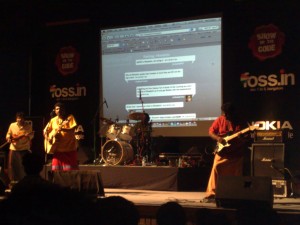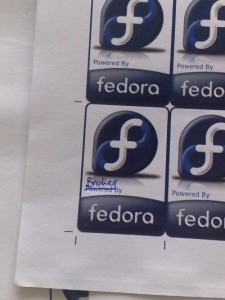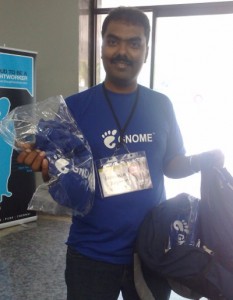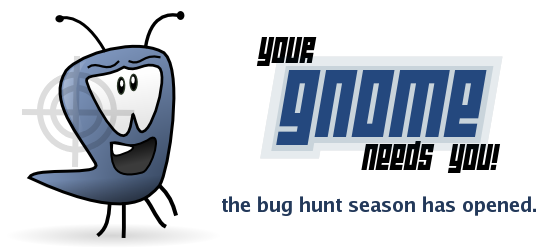I had the great pleasure to be invited to GNOME.Asia taking place in Hong Kong and to give a talk there.
The first day started off with a very nice introduction by the local organizing committee. It is amazing how much energy they invest in Free Software, especially in GNOME. I think it’s outstanding given that I don’t see that many contributers from eastern Asia and that I was told several times that the attitude in Free Software communities is discomforting, at best, to people from eastern Asian cultures. But maybe it’s because of GNOME’s rather friendly community these people feel comfortable in GNOME. Let’s keep it that way.

The main talks were given by westerners and I hope we (the westerners) could encourage the audience to believe in themselves and in GNOME. We, I and my old GNOME friend Andre Klapper, were talking about how to start contributing to GNOME as a member of the Bugsquad. We already talked together a couple of GUADECs back. Our slides can be found here. With probably 75% of the conference attendees the talk was comparately well attended and I think it went well, too. We had a good and very unexpected discussion afterwards, too. That was very refreshing.

The second day was filled with talks, too, although I didn’t find it as interesting as the first one. Mainly because I couldn’t understand many talks. The language barrier was quite high for me as my Chinese isn’t all too good 😉 While I do appreciate the Free Software communities for enabling everyone to have access to computing, i.e. by translating the software into every language in the universe. I do sometimes wonder whether we actually fragment ourselves and should rather concentrate on improving the actual code. Especially since we are an international community having interational conferences. If there were isolated communities, it is crystal clear that translating everything into these languages is a major bonus. But since we eventually want to talk to each other and support each other, the translations are a bit of a hurdle to overcome. But this point is very moot because these people probably wouldn’t even know about Free Software, not to mention want to exchange thoughts, if the software wasn’t translated in first place.

There was actually one talk about Asian Women’s participation in Free Software Projects. But the talk disqualified itself quite early by bringing the common biological argument of different brains and that thus women could not code (sic!).

I enjoyed the stay in Hong Kong so much that I decided to append two weeks of traveling through China. It was very hot and humid and next time I’ll try to carry less things with me (although I do travel very lightly already).
Thanks a lot to the GNOME Foundation for making this possible for me. I also think that it helped to foster Free Software and GNOME in Hong Kong, China and Asia.







